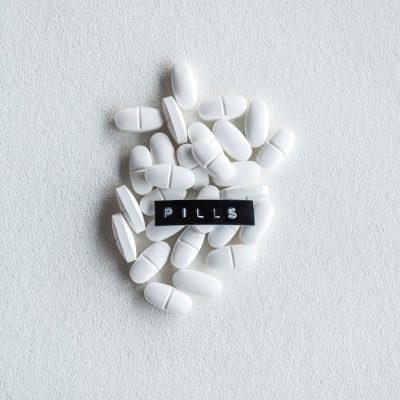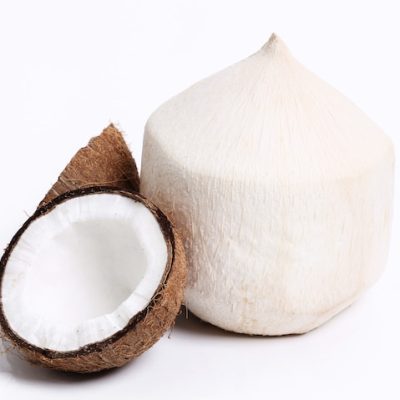We don’t always get all the nutrients we need from our diets, so we’ve compiled a list of the best vitamins and supplements for acne and skin health to ensure you’re covered! Who doesn’t want beautiful, healthy skin? We all desire that radiant glow that catches attention when we enter a room.
Radiant skin starts from within. A balanced diet and a solid skincare routine are essential for maintaining fresh and beautiful skin, but sometimes we need a little extra support. If you’re consuming enough fruits and vegetables, your skin is likely well-nourished. However, even with a careful diet, environmental toxins, allergens, poor air quality, excessive sun exposure, and chemically treated water can negatively impact even the best complexions.
While it’s easy to treat skin issues like acne with creams and cleansers, many treatment methods overlook the root causes of poor skin health. Incorporating high-quality supplements into your routine can significantly aid in healing problematic skin!
This post may contain affiliate links, which help keep this content free. Please read our disclosure for more information. Conditions like acne often signal underlying health issues. Sometimes, bad skin results from poor hygiene and the buildup of oil and dirt, but it’s usually linked to health problems.
The American Academy of Dermatology states that the primary causes of acne are excess oil, hormones, and an accumulation of dead skin cells clogging pores. Many dermatologists still argue that diet has no impact on acne. However, excess sugar in the diet can trigger a hormone that leads to increased oil production, resulting in breakouts. When skin tissues become inflamed, breakouts can develop into acne.
Both of these issues can be addressed through dietary changes and ensuring your body receives the necessary nutrients to reduce inflammation and regulate oil production. Hippocrates famously said, “Let food be your medicine, and medicine be your food,” and your skin can reflect whether you’re getting the right nutrients!
Here are some of the best vitamins and supplements for acne and skin health. It may seem surprising that one of the best acne-fighting supplements is derived from oily ocean fish, but Omega-3 fatty acids are excellent anti-inflammatories. Most acne and skin conditions stem from inflammation, both externally and internally. Omega-3s inhibit two chemicals responsible for breakouts, and many acne medications mimic their effects.
A Japanese study found that individuals who added Omega-3s to their diet experienced significant skin improvements. It’s also well-known that people living in coastal areas who consume plenty of fresh seafood have lower rates of acne. Incorporating oily fish like sardines and anchovies into your diet is a great way to boost your intake, but if you prefer plant-based sources, consider flaxseeds, chia seeds, or walnut oil. For optimal skin health, consider taking a supplement with at least 1000 mg of EPA Omega-3s daily. Dr. Tobias Omega 3 Fish Oil is one of the best options available and is what we personally use. There are also many vegan Omega-3 supplement options.
Dermatologists often prescribe Retin-A and Accutane for acne, both of which are derivatives of vitamin A. Topically, it helps prevent the buildup of excess skin that clogs pores. It’s also a powerful antioxidant that reduces inflammation when taken internally. Anyone who has experienced acne knows how inflamed and painful it can be, and vitamin A helps alleviate that both internally and externally.
Research indicates that low levels of vitamin A can affect not only skin health but also the immune system, blood cell production, and overall well-being, so consuming vitamin A-rich foods benefits your entire body. Vitamin A is available in both pill and liquid forms. Try Solgar Dry Vitamin A for a gluten-free, vegetarian tablet, or Seeking Health Vitamin A Drops for a liquid option.
Unless you spend a lot of time in the sun, you might be vitamin D deficient. Only a few foods, like eggs, certain fish, and fortified dairy products, contain it, so most people don’t get enough. Your skin produces vitamin D when exposed to sunlight, which is crucial for calcium absorption and plays a significant role in your ability to fight infections. It’s ironic that too much sun can harm your skin, but too little can also be detrimental!
You may notice that spending more time in the sun correlates with fewer acne breakouts. This isn’t because the sun “dries out” the skin, as many believe, but because you’re getting more vitamin D. There’s been some debate among researchers and doctors about how much vitamin D is adequate, with the suggested daily requirement being 600 IU. However, most supplements contain higher levels and are generally considered safe.
Vitamin D is available in both liquid and capsule forms. Seeking Health Vitamin D Drops is a high-quality liquid option, ideal for those who struggle to absorb supplements. If you prefer capsules, Garden of Life Whole Food Raw D3 contains 5000 IU along with an enzyme blend for digestive support.
Recent research has highlighted the benefits of vitamin K2 Mk-4 (menatetrenone), which is different from the more commonly known vitamin K. It offers remarkable health benefits, including positive effects on cardiovascular health, brain function, and gut health. It also promotes beautiful skin due to its anti-inflammatory properties, helping to shrink pores and heal scars, which is particularly beneficial for those with chronic acne.
Grass-fed butter is a great source of vitamin K2, but supplements are often more convenient, especially for vegans. Vitafii Vitamin K2 (MK-4 MK-7) with D3 provides excellent absorption since K2 and D3 work together to maximize their benefits.
Remember how we discussed Omega-3 fatty acids and their skin benefits? Zinc plays a crucial role in helping your body metabolize Omega-3s and transport vitamin A from the liver. It also breaks down the nerve chemical that triggers oil production during stress. Studies show that individuals with acne often have low zinc levels, which makes sense given its importance in breaking down and transporting essential nutrients for healthy skin.
You can obtain zinc from your diet by consuming beans, nuts, seeds, whole grains, or lean meats, but if you want to heal your acne quickly, consider taking a zinc supplement alongside omega-3 and vitamin A. Many brands use synthetic zinc, so opt for Peak Performance Raw Organic Whole Food Zinc.
Choline can be found in foods like eggs, milk, soaked nuts, and cruciferous vegetables, but your body also produces it naturally. This nutrient supports metabolism and cellular structure, helping maintain proper B vitamin levels, which are vital for collagen and elastin production in the skin. While not technically a vitamin, choline is part of the B complex family.
Despite our bodies producing choline, studies indicate that over 50% of the population may be deficient, likely due to poor absorption. Choline deficiencies can contribute to various age-related issues, including aging skin. Solgar Choline is an excellent supplement for combating acne, as it not only enhances skin health but also supports memory and liver function.
If you’re dealing with hormonal skin issues, magnesium can be a game-changer. It helps balance hormones and supports the nervous system, promoting relaxation and reducing stress. Magnesium lowers inflammation by decreasing C-reactive protein levels in the body, which is linked to the stress response. A study involving middle-aged overweight women found that magnesium supplementation significantly reduced inflammation.
Taking magnesium with calcium enhances absorption. Calcium is beneficial for skin health as it aids in cell renewal and the production of antioxidants that combat inflammation. Solgar Calcium & Magnesium is a good vegetarian formula that supports bone health, balanced hormones, and healthy skin.
If you’re still facing challenges with acne and skin health, remember that achieving clear skin is impossible without a healthy diet rich in whole, natural foods! This principle is a key focus of our 21-Day Fat Loss Challenge, which emphasizes changing eating habits and learning what to eat for long-term success. Participants typically lose an average of 10-21 pounds in 21 days and often share how the program has helped them develop sustainable eating habits.
For more information about the 21-Day Fat Loss Challenge, click here. If you found this article on the best vitamins and supplements for acne and skin health helpful or have any questions, please leave them in the comments below!










